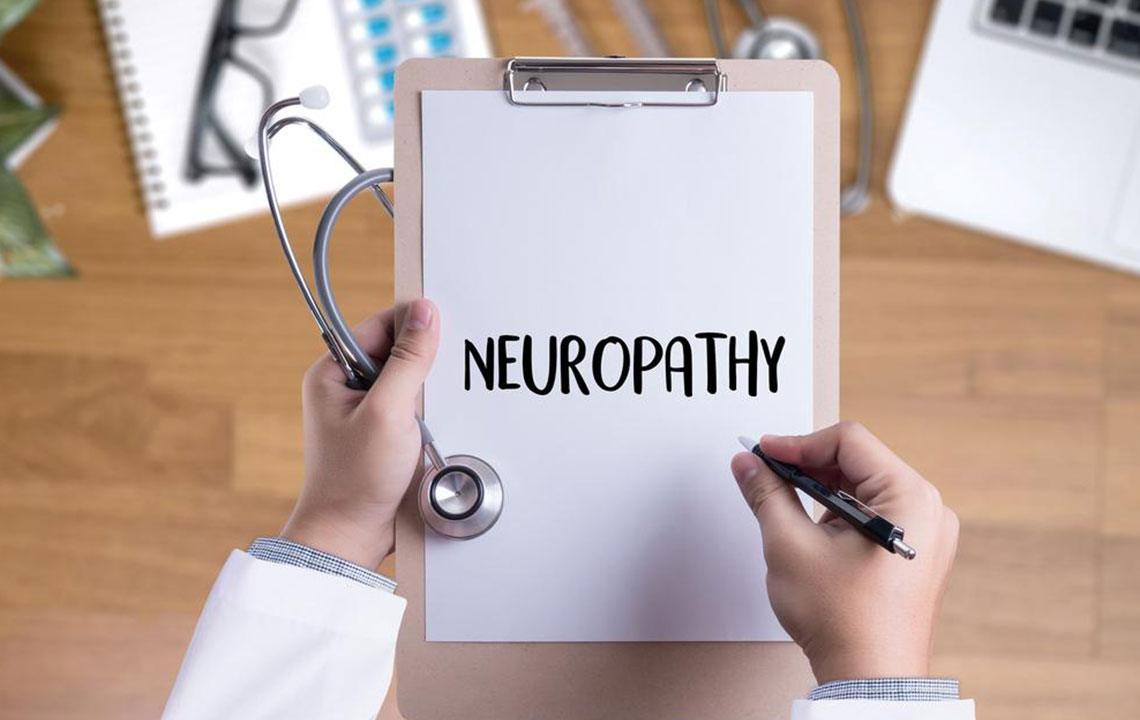Causes, Symptoms and Treatment for Neuropathy

Neuropathy in your feet can be painful and influence your entire life negatively. Your feet hold the entire weight of your body. If you’re suffering from neuropathy in feet, it can be a big hindrance to your daily activities and the overall functioning of the body.
If you suffer from neuropathy of your feet, you should be aware that this disorder revolves around your nerves and nervous system. Your peripheral system has a number of nerves, each of which has a specific function. The sensory nerves are responsible for receiving different sensations like pain, heat, touch, and more. The motor nerves deal with muscle movement and coordination, while the autonomic nerves deal with functions relating to your heart rate, bladder, digestion, and so on.
Symptoms of neuropathy in feet
If you are suffering from neuropathy in your feet, you will experience the following symptoms.
- A sudden feeling of numbness in your toes, which then spreads to the entire feet, and eventually the legs.
- Prickling or tingling sensation in your feet.
- Sharp jabbing pain across the middle of your feet.
- A freezing, burning or throbbing pain.
- The affected feet become extremely sensitive to touch.
- Coordination and balance are affected, resulting in you falling or losing balance often.
- Gradually, once the motor nerves are affected, you might experience paralysis as well.
- Dizziness, lightheadedness, and changes in your blood pressure.
Causes of neuropathy in feet
There are a number of reasons as to why you could be affected by the neuropathy of your feet.
- Excessive consumption of alcohol can be a causal factor as alcohol can interfere with your nervous system as well as cause vitamin deficiencies.
- If you are suffering from autoimmune diseases like lupus, rheumatism, Sjogren’s syndrome, chronic inflammatory demyelinating polyneuropathy, and so on, you might be prone to neuropathy in your feet or other parts of your body.
- Exposure to toxic substances like chemicals, heavy metals, and poisons can affect your entire body, more so your nervous system.
- Diabetes is another leading cause of neuropathy in the feet.
- Treatments and medications like chemotherapy have a huge list of side effects of neuropathy being one of them.
- Bacterial, viral, and fungal infections like Lyme disease, leprosy, hepatitis C, HIV, and diphtheria can cause this disorder.
- Neuropathy can be inherited too. Research shows that people who have a family history of this disease are more likely to end up being affected themselves, as opposed to people who don’t.
- Accidents falls, and injuries can damage your nerves, which in turn, can result in neuropathy of the feet. Applying too much pressure on your nerves like when you have a cast or are using crutches can weaken your nerves and cause neuropathy as well.
- Growth or tumors that are both malign as well as benign can cause neuropathy as these growths can apply pressure on your nerves.
- Vitamin deficiency (especially vitamins like B1, B6, B12, and E)
- Abnormal protein in your body, bone cancer or other bone marrow related diseases.
- Other diseases like liver disease, kidney disease, an underactive thyroid, and connective tissue disorder can cause neuropathy.
Treatment for neuropathic pain
The symptoms you experience if you’re suffering from neuropathy or diabetic neuropathy, can be frustrating and be a source of great discomfort. Here are a few ways to treat neuropathy of the feet and help relieve the pain and discomfort caused by it.
- There are a number of painkiller medications and anti-inflammatory drugs that are available like tramadol and oxycodone. These painkillers can help relieve pain and soothe muscle spasms.
- You can use creams that contain capsaicin. This substance is found in bell peppers and hot peppers. It can work as a good topical treatment and help with the numbness and pain.
- Gabapentin and pregabalin are anti-seizure medications. They can help relieve any nerve pain that you might be suffering from. However, these medications come with side effects like drowsiness, weakness, and dizziness.
- Anti-depressants work as a great medication for neuropathy of the feet as well. Since anti-depressants can improve the chemical balances and processes in your brain and spinal cord, it can also help ease pain and discomfort in your feet. Antidepressants have side effects like nausea, drowsiness, loss of appetite, dry mouth, and constipation.
- Mild exercises and physical therapy can help deal with the numbness and also reduces pain, and improves your blood circulation.
- Acupuncture has proven to be helpful in treating neuropathy. It involves the process of inserting needles and applying pressure on certain parts of your body. This can help reduce the symptoms you experience.
Neuropathy in feet can interfere with your day-to-day activities, but with the right treatment and consultaion, you can relieve and reduce the symptoms and pain.


